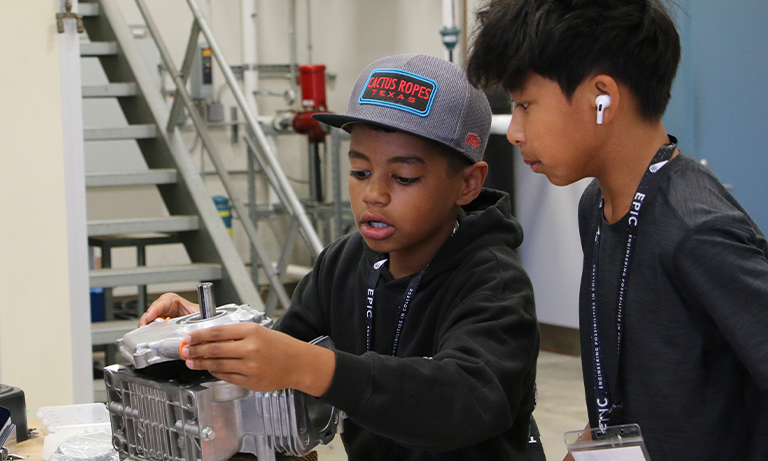Eric Espinoza-Wade, who first became interested in rehabilitation engineering as a doctoral student designing technology for older adults and later working with stroke victims, will now play a vital role in improving the nation’s health by reviewing scientific innovations for the National Institutes of Health (NIH).
The mechanical engineering professor said his appointment to serve as a member of the NIH’s Biomedical Computing and Health Informatics Study Section, Center for Scientific Review, will also teach him how to better craft his own research ideas and proposals – and will help Cal Poly and its students gain valuable insight.
“My role will allow me to stay abreast of cutting edge research and will also allow me to remain aware of research opportunities for our students,” Espinoza-Wade said. “It will also allow me to discuss scientific achievement at Cal Poly with other experts in the fields of health and engineering and to make them aware of some of the exciting activities happening on campus.”
Founded in the late 1880s, the NIH is the nation’s leading medical research agency. Members of NIH study sections review grant applications submitted to the NIH, make recommendations on those applications to the appropriate NIH advisory council or board and survey the status of research in their fields of science.
Recently, the NIH has created new calls for proposals relevant to COVID-19. (Anthony Fauci is the director of the NIH’s National Institute of Allergy and Infectious Diseases.)
“These often allow for more experimental work, that in turn may lead to novel discoveries,” Espinoza-Wade said. “The NIH also funds a variety of small businesses, technology transfer, and other less traditional projects.”
Espinoza-Wade will provide feedback to researchers on work they propose to improve lives through the application of technology to healthcare. The entire study section will meet twice a year, and more specialized smaller panels will meet more frequently.
Espinoza-Wade, who earned all his degrees from the Massachusetts Institute of Technology, was selected for his demonstrated competence and achievement in his scientific discipline as evidenced by the quality of research accomplishments, publications in scientific journals and other scientific achievements, according to an announcement from the NIH. His numerous publications include much research on socially assistive robotics, which entails creating robots with the ability to help people with convalescence, rehabilitation, training and education.
“Socially assistive robotics may allow us to provide tools that extend the clinician’s expertise into the home,” Espinoza-Wade said. “These are tools that can be programmed in conjunction with a health professional to provide long-term, consistent therapy, especially for those suffering from social or communicative challenges – for instance, children with hearing impairments, individuals with motor neurological deficits, and children with Autism spectrum disorders.”
Right now, he said, he’s most interested in the application of “big data” to medicine and its potential impact.
“These techniques are typically discussed when people talk about using electronic health records,” he said. “However, there are multiple sources of health information, including the doctor’s notes, the phone in your pocket, and the observations of your family and caregivers. Big data learning approaches can combine these to paint a more holistic picture of health – beyond the yearly physical – and result in new health techniques.”


